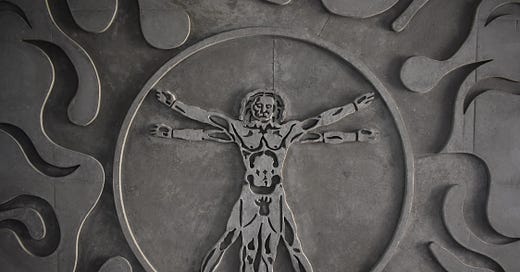“"History" in a popular sense is a tale of the past that gets simpler and simpler, from which connections, depth and outliers -- in other words, stories like mine -- are gradually deleted in the popular mind.” Ted Nelson, Possiplex: Movies, Intellect, Creative Control, My Computer Life and the Fight for Civilization
November 4, 2023. Vol. 1, Issue 9.
Welcome new readers. Thank you readers for comments on Cruise into the backseat: The Future of driverless cars and the Irvine Central Library: Feasibility and Feedback.
I’ve new terms to share: Polymaths, polystores, possiplex, a fact, a story, and more. First, update and announcements.
Update: There is still time for feedback about the library, according to Chris Slama, Community Services Director. Please email: librariesfeedback@cityofirvine.org. It would be best to hear from interested community members within the next couple of weeks, so they can properly prepare for the November 16, Town Hall meeting. The goal at this point is to conduct a feasibility and concept development study. Public engagement is helping to determine the types of programming needs the community has, to help City determine an appropriate size/footprint for a potential new facility. The Oct 25 Thurs presentation has not yet been posted but should be any day now on the Great Park Framework Plan Project Updates page at Great Park Framework Plan (arcgis.com).
Announcements
Did you know Substack has a text to speech feature where you can listen instead of reading? I was pleased to discover this feature last week. I tested it briefly, and found myself listening to one of my writings here. You can too. Download the Substack app. Make sure you’re subscribed to Infophilia on the app and then tap the play icon (triangle shaped arrow pointing right) at the top of any post to listen. Substack FAQ has more information here. If you try it out, please let me know. It can be handy!
Now, the story in the headline.
Introduction
“The polymath not only moves between different spheres or different fields and disciplines, but seeks fundamental connections between those fields, so as to give them a unique insight into each of them." Waqas Ahmed author of The Polymath: Unlocking the Power of Human Versatility.
In Infophilia and the Dopamine Connection, I described the word infophilia as a strong love, an affinity, curiosity and fascination with information, infophiles as lovers of information and philomaths as lovers of learning. In this essay I discuss polymaths, polystores, and possiplex. I present Ted Nelson, founder of two fields, Hypertext and Hypermedia and Human Computer Interaction (HCI), as a living polymath, prescient about the creator economy, micropayments, and scientific visualizations. I conclude with a preliminary definition of infophilia as a positive psychology of information which can be investigated as a subset of the multidisciplinary information sciences.
Polymaths, lovers of much learning, have become a pop culture meme in recent years and the media, thanks to Dr. Sheldon Cooper, the theoretical particle physicist in the fictional show Big Bang Theory, the controversial billionaire businessman from South Africa, Elon Musk whose interests span from space exploration to cars and media, and the Most Interesting Man in the World Dos Equis beer commercial. Polymaths are a "Renaissance People," vibrant palettes of knowledge and creativity. They don't settle for a single color; instead, they paint with a wide spectrum. The archetypal polymath is Leonardo da Vinci, artist, scientist, and inventor all in one; his Vitruvian man is evoked in the image at the top of the essay. Hedy Lamarr, the Hollywood actress, was a dazzling beauty and accomplished actress on the big screen and a brilliant inventor who co-invented a ground-breaking technology for secure communications during World War II that is still in use today. (In Appendices, before Notes, at the end, I list polymaths down the ages from Africa and Asia, literature, and pop culture.)




